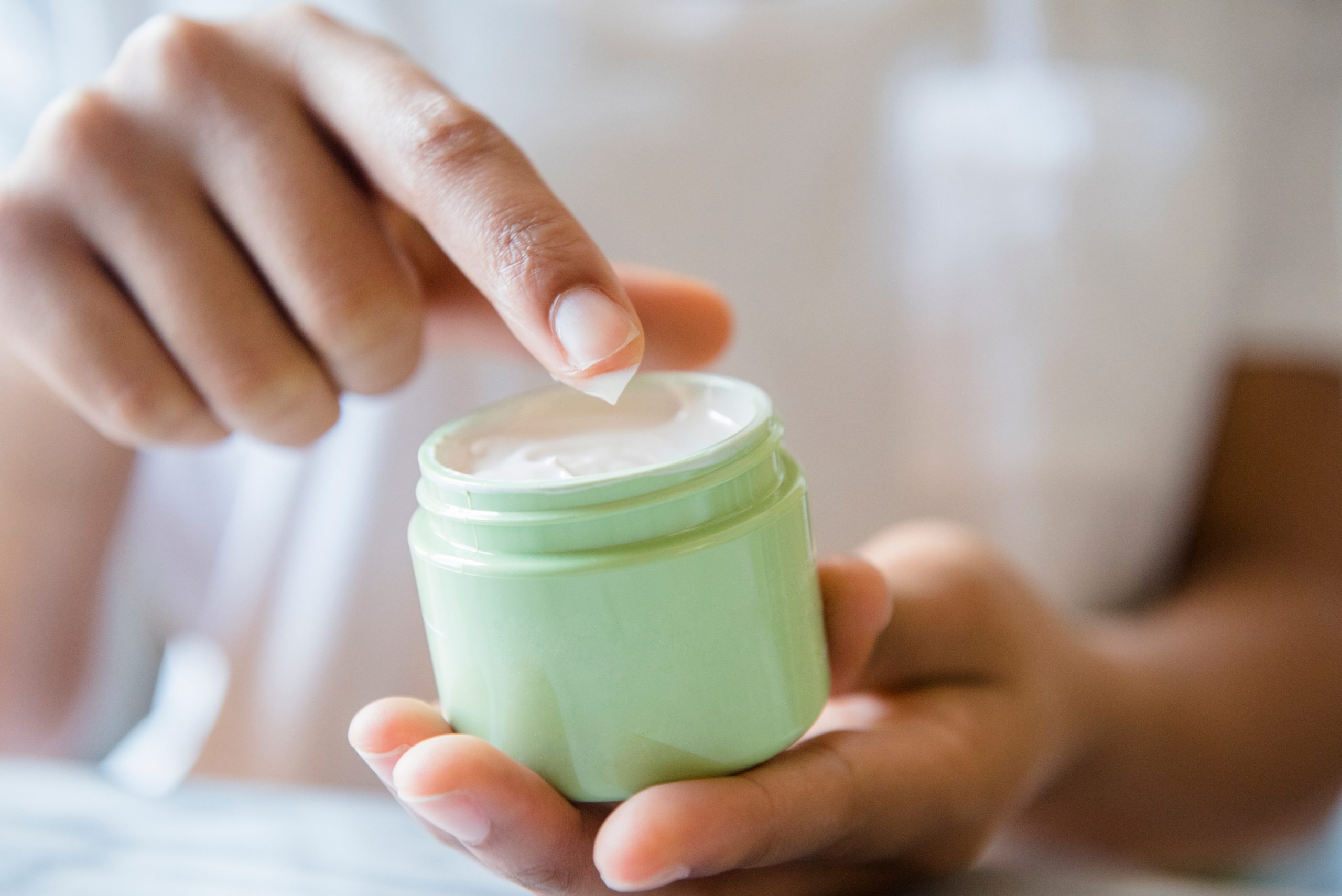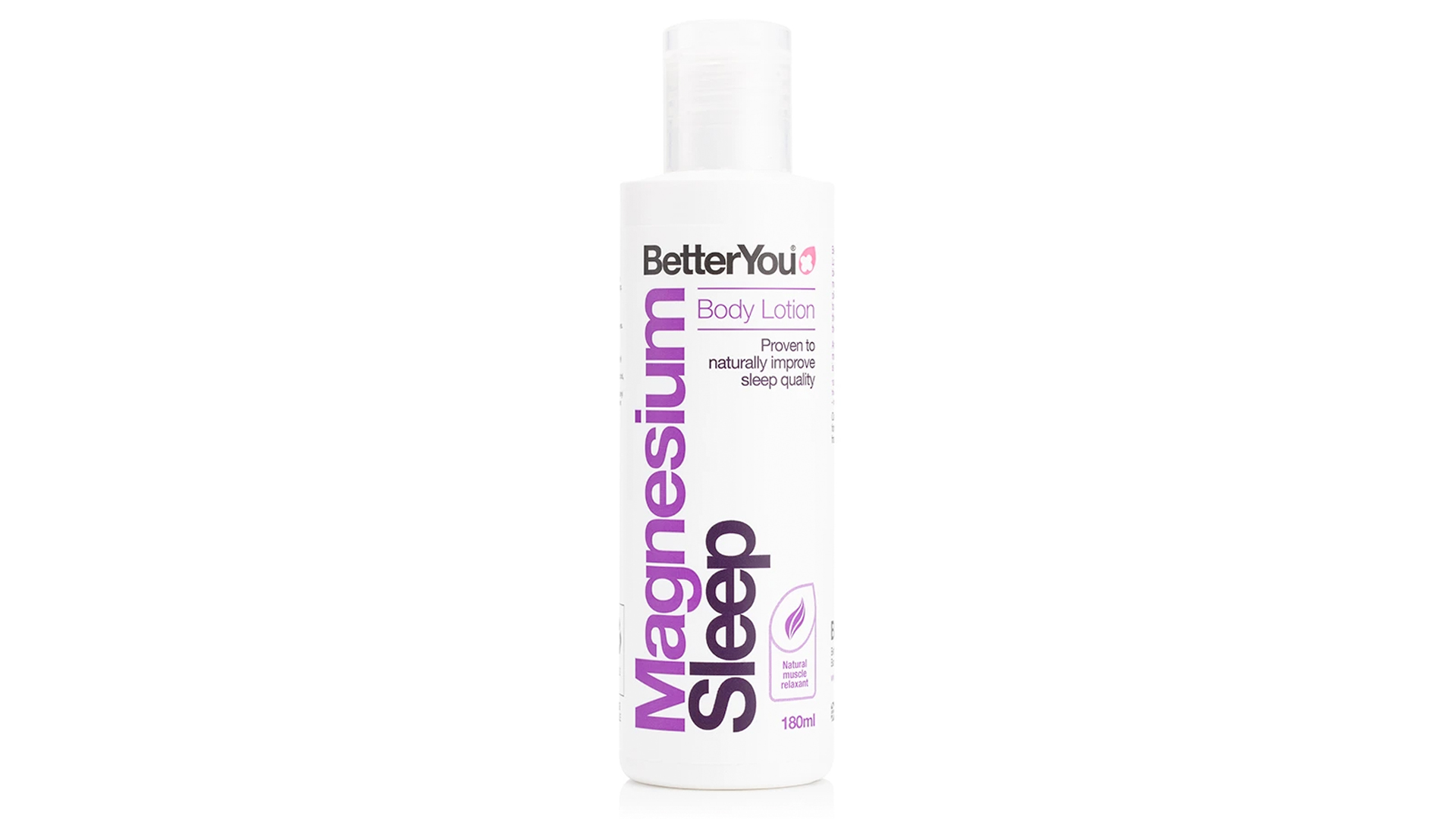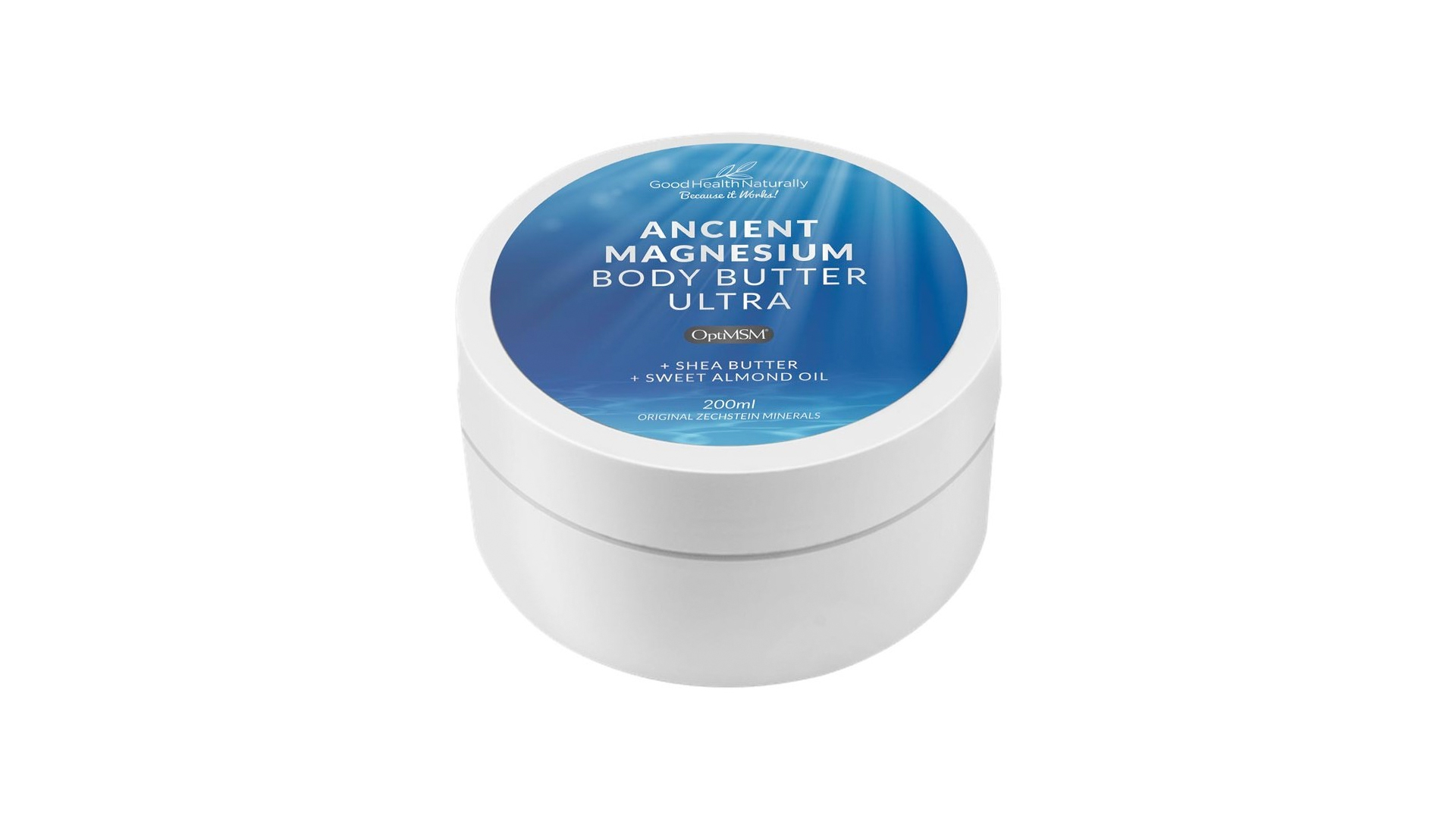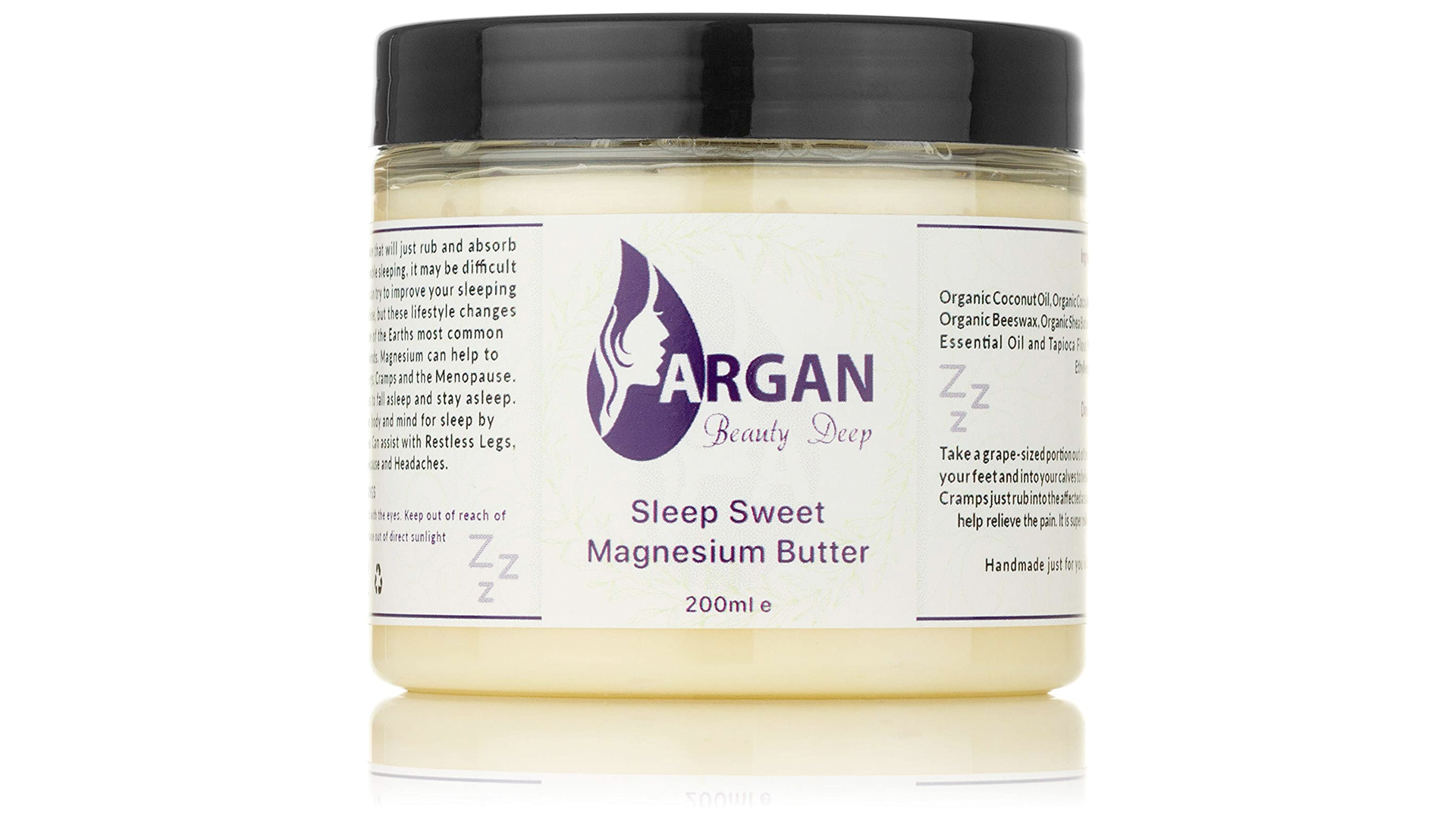What is magnesium butter and how can it help you sleep?


Magnesium butter has been hailed as the latest beauty product that will help you fall asleep.
We all know how a bad night’s sleep affects the body, often leaving us spaced out, sluggish and above all incredibly tired. Whilst some people can drift off as soon as their head reaches the pillow, others struggle. Plus, issues like insomnia, vivid dreams and nightmares have been getting worse during lockdown, seriously affecting our snooze time.
We’re always on the lookout for ways to relieve our sleep struggles - be that breathing exercises or sleep sprays. Now magnesium butter is the latest remedy that promises to help us nod off. But what is magnesium butter? And how can adding it to our night time skincare routine help us sleep?
What is magnesium butter?
Magnesium butter is a moisturising body cream that contains a form of the mineral magnesium. Magnesium is an important mineral that is found in every cell in our bodies and helps to keep us functioning. It helps to maintain healthy bones, fighting off diseases like osteoporosis, and helps regulate insulin levels - which in turn reduces your risk of developing diabetes. Magnesium also lowers blood pressure.
A number of magnesium butters on the beauty market contain magnesium chloride - also known as magnesium oil. This is an absorbable form of magnesium that can contribute to your daily recommended magnesium intake.
The recommended daily allowance (RDA) of magnesium by the NHS is 300mg a day for men and 270mg a day for women. Studies have shown that the average person is likely to be deficient in magnesium. And this is what often leads people to feel weak, nauseous and fatigued.
To compensate for this, people take magnesium supplements to increase the level of magnesium in their bodies. Magnesium butters by brands like Neom or BetterYou contain between 88-150 milligrams of magnesium in 5 millilitres of their product. Using these special creams, is therefore another great way of meeting your magnesium RDA.
Parenting advice, hot topics, best buys and family finance tips delivered straight to your inbox.
Will magnesium help you sleep?
According to the experts, yes, magnesium will help you sleep. The mineral is responsible for 300 different body processes, one of which is to help activate mechanisms that will quiet and calm your nervous system.
One of these mechanisms is the neurotransmitter GABA, explains naturopathic doctor, Dr Barb Woegerer: “Magnesium plays a role in supporting deep, restorative sleep by maintaining healthy levels of GABA,” she says. “GABA is a neurotransmitter and its job is to reduce the activity of neurons in the brain and central nervous system. This leads to increased relaxation, reduced stress, calm mood and improved sleep. ”
Nutritionist Clarissa Lenherr of biohacking platform bioniq, agrees that magnesium helps you to drift off at night. “In order to fall asleep, the body and brain needs to be relaxed, and magnesium supports this process by activating the parasympathetic nervous system that is responsible for relaxation and regulating melatonin and neurotransmitters,” she tells us.
One study found that those who upped their magnesium intake benefitted from better quality sleep and an increase in time spent asleep. Whilst other research suggests magnesium can help relieve anxiety and depression - two things that can often affect how well you sleep.
How do you use magnesium butter to help you sleep?
As it’s sold like a cream, you can use magnesium butter to help you achieve deep sleep in the same way you would a body moisturiser. Simply squeeze some into your hands and massage all over your body.
Alternatively, if you’re short on time or don’t want to use it all over, you can just apply it on key areas. Focus on your neck and shoulders as this is where tension is known to build up.
The magnesium in the body butter absorbs into your bloodstream and makes contact with your muscles. Here the magnesium can help relax muscles and relieve muscle cramps. This in turn will help you unwind and fall asleep easier.
What’s more, some magnesium butters contain oils like lavender. Lavender not only smells heavenly, but also contributes to a better quality of sleep - according to a 2015 study.
Can you use too much magnesium cream?
According to British health supplement site BetterYou, you shouldn’t worry if you use too much magnesium butter cream. The brand sells a range of tried-and-tested magnesium sleep products and have extensive knowledge in the area.
“You don’t have to worry about overdosing on magnesium lotion due to its transdermal application, which means the mineral is absorbed through the skin rather than the digestive tract,” their website states.
This is similarly backed up by Ancient Minerals, another beauty brand that specialises in magnesium beauty products. They claim that “you can’t really rub too much magnesium oil onto your skin.”
As always, to err on the side of caution, we’d recommend you follow the application instructions on the label of your magnesium butter.
Best-selling magnesium butter products
Whilst you can make your own homemade magnesium butter, there are plenty of ready-made versions out there by trusted brands too.
BetterYou Magnesium Sleep Mineral Lotion

Credit: Amazon
Massage four pumps of this lotion onto clean, dry skin, 30 minutes before going to bed.
View at Amazon (£9.95)
Ancient Mineral Magnesium Body Butter Cream

Credit: Amazon
This skincare brand specialises in Magnesium products and this is a best-seller.
View at Amazon (£21.95)
NEOM Perfect Night’s Sleep Magnesium Body Butter

Credit: Amazon
Cult brand NEOM has a lovely nourishing magnesium butter with extracts of lavender, sweet basil and jasmine.
View at Amazon (£36)
Argan Beauty Deep Sweet Sleep Magnesium Butter

Credit: Amazon
Argan Beauty Deep's magnesium butter claims to improve not just sleep, but restless legs and headaches too.
View at Amazon (£21.99)

Emily Stedman is the former Features Editor for GoodTo covering all things TV, entertainment, royal, lifestyle, health and wellbeing. Boasting an encyclopaedic knowledge on all things TV, celebrity and royals, career highlights include working at HELLO! Magazine and as a royal researcher to Diana biographer Andrew Morton on his book Meghan: A Hollywood Princess. In her spare time, Emily can be found eating her way around London, swimming at her local Lido or curled up on the sofa binging the next best Netflix show.